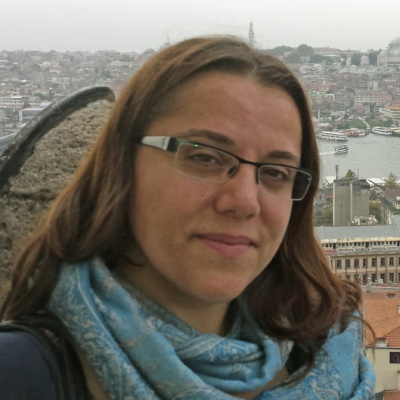Panel 4 – Temporalities and the reconfigurations of imaginaries
23.10.2020 | 15:00 – 16:30 (CET)
Discussant: MEGHA AMRITH
(MPI for the Study of Religious and Ethnic Diversity, Göttingen)

Gloria C. Pérez-Rivera
PhD Candidate at Vanderbilt University, Nashville, USA
A Here and Now of Debt: Displacement Bureaucracy and Moneylending in Cartagena, Colombia
Abstract: The 50 plus year Colombian conflict has resulted in the mass displacement of millions, with 8 million state registered Internally Displaced People. More than half were displaced during the peak of the conflict (1997-2008) 1 and today the “here and now” of multi-generational displaced households is shaped by poverty and debt dependency. This paper emerges from 17 months of ethnographic work among displaced households in the city of Cartagena. Arriving two decades ago as squatters, in the last ten years these households have been relocated to state housing projects as part of redress for conflict victims. The government requires displaced households stay in these marginal neighborhoods for ten years to keep their house titles, contributing to the formation of these neighborhoods as financial frontiers where households are targeted by narco-paramilitary moneylenders on whom they depend to subsist. This paper examines the complex entanglement in which state and NGO bureaucracies seek to create a new class of subsistence entrepreneurs, yet instead create fertile ground for the extension of instant credit and ever-present indebtedness that burdens family ties. Acquiring debt in conditions of displacement is an economic transaction in present time in which repayment depends on a hopeful future; yet, debt comes to control the daily flows of life and lends to an inescapable present. Chronic indebtedness and the poverty that comes with it has tremendous consequences for young generations who are unable to achieve economic and familial independence, and for old and young whose hoped-for economic stability depend upon faulty redress and aid programs. Through thick ethnographic description and an analysis framed in migration, urban, labor, and economic anthropology, this paper examines how multi-generational displaced households are stuck to a present of indebtedness and creatively negotiate social and economic life therein.


Snežana Stanković
PhD Candidate at Humboldt University of Berlin, Berlin, Germany
Lumnije Jusufi
Project Leader at Humboldt University of Berlin, Berlin, Germany
Ever-shifting Homes: Forced (Re-)Migration between Kosovo and Germany
Abstract: Our paper explores the notions of home as experienced by migrants from Kosovo through the framework of forced and voluntary remigration from Germany. The comparative observation aims to capture similarities and differences between individual processes that we read as figures of loss. They jointly appear as a loss of home that we understand not as a fixed locality but as a lifeworld. Essential to our study is a modal way of dwelling in which one tries to reach the desired destination full of hope and thereby lead a fulfilled/meaningful life. For this reason, we want to unpack the semantics of forced mobility. Its array suggests the dynamic nature of “force” upon which bodies, epistemologies, feelings, and emotions move. A forced departure from a country of origin often transpires as a desired arrival in a chosen country. The imagined and experienced reality collapse against each other through multiple estrangements — generated by administrative measures as well as the linguistic, social, cultural, and emotional incapability to (re-)enter the given system. Entrapped by the unbearable “here,” the present shifts from reality to fantasy (Minh-ha 2011) and the place to “elsewhere” (Zuluaga 2015). Lives become “anachronic” and fall apart (Said 2006). Positioned on the crossroads of sociolinguistics, ethnography of emotions, and narratology, we address the state of the “restlessly unhomed” (Bhaba 2018) whether one speaks of a — temporally — recognized refugeeism or a forced return to “a safe country of origin.” Our focus on emotional and linguistic vocabularies of home and (un-)familiarity implies a quest for engaged and actional scholarship on forced migration and receiving regimes.

Victoria Kumala Sakti
Post-Doctoral Researcher at the MPI for the Study of Religious and Ethnic Diversity, Göttingen, Germany
‘My river flows here for now’: Narratives of state pensions and the value of ageing bodies in exile
Abstract: This paper traces the temporal dimensions of exile by taking a closer look at narratives of ‘state pensions’ among East Timorese former refugees in Indonesia. Providing a small but stable income, pensions from the Indonesian state are awarded to East Timorese individuals who served as civil servants prior to, during and after Timor-Leste’s independence from Indonesia in 1999. State pensions contain the notions of claim, deservingness and loyalty. At the same time, they may also become a source of this population’s perpetual rejection by people in the homeland as pensions mark histories of collaboration with the former occupying power. This paper explores the ways in which narratives of pensions, their presence and absence, intersect with the ways people perceive life in exile, and how the entailed bureaucracies shape familial relations and (im)mobilities. It shows how in the context of protracted exile, pensions are significant not only for the ‘deserving recipients’, i.e. older East Timorese pensioners, but also for maintaining familial survival. The paper highlights how recent biometric authentication procedures ascribe added value to ageing bodies in exile, which are otherwise marginalised in everyday social life and forced migration literature. Examining the significance of pensions beyond the level of family relations, the paper reveals deeper social inequalities East Timorese communities in exile face, long after attaining legal status. In dealing with disadvantaging circumstances, people thus emphasise the ‘here and now’ as a way of navigating and experimenting with the boundaries of the future.
